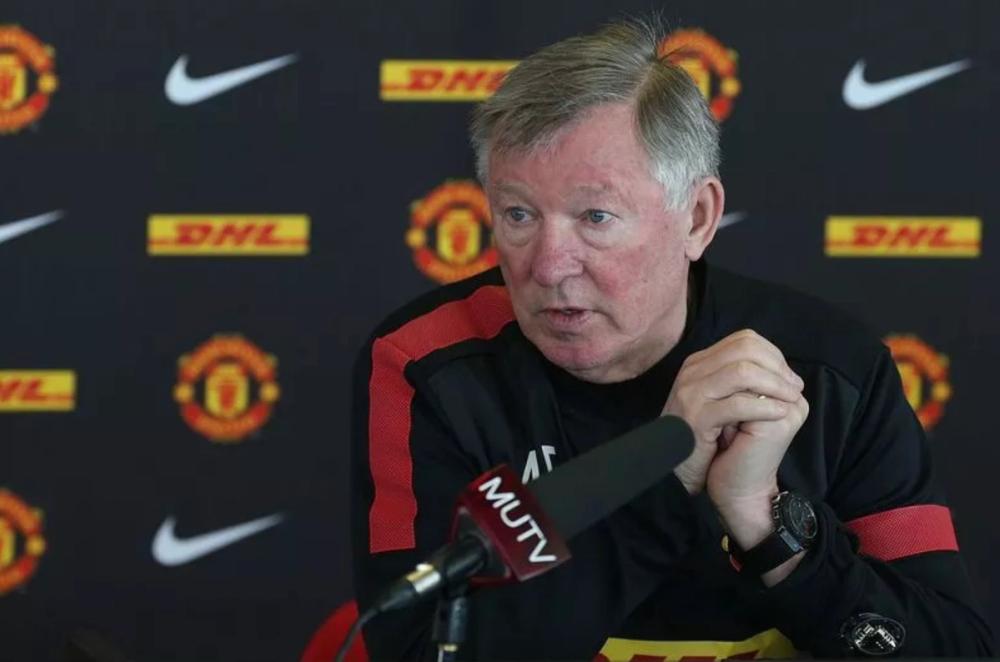It’s ironic that at a time when our business leaders have never had so many ways to communicate that so many choose to hide behind their marketing and social media teams. Richard Siddle argues it’s time for them to step out from the shadows and speak out for the businesses and industry they are supposed to be leading.
When Steve Finlan, chief executive of The Wine Society, sat down last autumn with a group of journalists recently for an on/ off the record dinner he made a glaring admission. This, to his knowledge, was the first time a Wine Society chief executive had ever held such an event. In all of its 150 years.
Or, in other words, the first time someone in his position has been willing to put their mettle on the line and talk openly with journalists. Not that the questions he was likely to face were going to be of a Paxman-style inquisition for a multi-award winning business, revered by many as one of the best in the industry for what it does.
It proved to be a fascinating insight into the buying and trading practices of this unique wine retailer. A chance for senior business journalists and wine critics to get a better understanding of how it works.
It was perhaps also a wake-up call to Finlan as to why he, or any of his predecessors, had not done this before – and what a missed opportunity it has been.
He and the Wine Society are not alone. Far from it. There are sadly far more leaders and chief executives across the combined drinks, retail and hospitality sectors that choose to stay quiet and work away behind the scenes than there are those willing to speak out and risk opening themselves up to public scrutiny – and all three sectors’ potential for future growth are harmed as a result.
Pass the buck

“Read all about it…” Or sadly don’t as so much of our retail, grocery and hospitality leaders choose to stay quiet and not speak out on the big industry issues
Too often when it comes to the big issues of the day – duty, business rates, inflation, cost of living, staffing, Brexit – so many of our drinks, retail and hospitality business leaders will quickly turn to our trade associations to do the talking for them.
Which on the one hand is fair enough. They are best placed to make the arguments direct with the government ministers and officials that matter. They have the time, skills and obligation to do so.
But look at how much more effective it is when you do get a business leader, a big chief executive, go to the national, local and regional media and tell it how it is. When they can personally show the very real impact those trading issues are having on their personal businesses and what they would like to see the government do about it. That is what is going to get people looking up in the morning from their cornflakes and really taking notice. Not just hearing from a trade association leader whose job it is to say such things – with all due respect to the great work our respective drinks bodies do.
Rather than being scared, or at best, shy, of the limelight, there is a huge opportunity for business chiefs and leaders to share their stories and stand up for their staff and the sector they are supposed to be leading.

Remember when Sir Terry Leahy was constantly on the nation’s airwaves talking up Tesco and the UK grocery retail sector. Where are his like today?
It did not used to be like this. Ten to 15 years ago you could name all the heads of wine, beers and spirits at all the major supermarkets. The chief executives of the Big Four supermarket chains were regulars on everything from Question Time to the Today programme. Business personalities in their own right.
Now supermarket chiefs come and go with little or no fanfare and what were once lauded as the best supermarkets in the world now sit and wait anxiously to see what Aldi and Lidl do and then swing their respective armies to follow suit. They have sadly set the example for many of their suppliers to do the same.
Similarly big brand owners and major supermarket buyers would be falling over themselves to be on industry panels, give key note talks at major conferences and your diary would be full of requests to do a set piece interview with them.
Hidden away
But ironically the more that media and communications channels have opened up – particularly with social media and the rise in corporate websites – the more business leaders have merged into the background. Hidden behind marketing and social media teams.
It means the retail and drinks sectors have lost the big bold personalities that used to dominate the agenda and have been replaced by a very different generation of leaders who would rather their businesses did the talking for them… without always taking the steps to make sure they do.
All of which is not just a big pity, but arguably means our industries are not as being well served as they were.
Yes, in many cases they might be better run, with wider, more diverse management teams that are less reliant on big noisy (and mostly male) personalities, but it does not help make the case for our respective industries when trying to talk to decision makers in politics, government and national media.

The national, regional and local media are thirsty for stories and businesses to support on issues that matter for their readers and viewers
If they did there is a ready made media out there thirsty to lap it all up. Not just those of us in the trade press, but our peers in the national, regional and business media who will often lack the knowledge and insights needed to really understand what impact a particular government policy – like an ABV-based duty escalator – is having on their readers and viewers.
Remember that the media wants to cover, investigate and report on the issues that really matter to their respective audiences. Business leaders, and company owners, are the employers who know what is really going on not just with their staff, but with potential voters of their local MPs. That’s how you get the attention of government. Through the post bags, and personal lobbying of MPs in their constituencies.
Hands up all those business chiefs out there who have a working relationship with their local MP and regional media? Who can call them up and given them your opinion. If you don’t there will be plenty of other local business leaders in other highly competitive industries who do.
I have worked in other sectors – most noticeably the grocery convenience sector where local retailers are a real campaigning voice for their customers and have their MP and local paper on speed dial. They want to listen. They know they are the local businesses who are are at the sharp end of public opinion in their area. The best business leaders have the power to give their local MP what they crave most – good PR that might influence their voters through their local and regional press.
That’s how the collective retail, hospitality and drinks industries can start to make their case.
Build locally

Sir Alex Ferguson knew the power of his local and regional media in getting out key messages about the business he effectively ran
Sir Alex Ferguson always said it was far more important for him when he was at Manchester United to have a good relationship with the sports editor of the Manchester Evening News and Granada Reports than it was the football correspondent of The Times or Telegraph.
It is the same with the trade and business press. It has always baffled me how so many of the drinks industry’s major suppliers, importers and merchants say they like to keep themselves under the radar when it comes to PR and media coverage.
There are only a small number of chief executives and leaders in the sector who will pick up the phone and share their thoughts on and off the record. The majority don’t seem to want to say anything at all. At least not publicly.
It’s why you often see the same people quoted and interviewed. They may or may not be the best at what they do, but they know how to get ours and your attention.
All of which makes it harder for our leaders to justifiably complain when they are hit by yet more damaging legislation from the government.
Now I appreciate this may not be a popular opinion and there will be drinks leaders out there spitting out their own cornflakes reading this.
Standing up

Daniel Lambert who now runs his business from France has built up a strong media profile standing up for the wine industry using social media to get his message across
There are some exceptions to the rule but they tend to be independent rather than corporate voices. Hats off to the likes of Daniel Lambert of Daniel Lambert Wines and Gavin Quinney of Château Bauduc who continue to shout loud and proud on any news channel that will have them about how damaging the government’s drinks and wine strategy is. Ironically they are doing so for their businesses based in France.
The majority of business leaders hide behind bland quotes in a corporate press release. Carefully crafted sentences that will go unread by the powers-that-be as they don’t hit home and get picked up by media voices with their own power to make a difference.
People don’t just work for a faceless company, they want to feel part of a business that has a personality, be proud of not just what it stands for, but what it does. That comes down to its leadership and the person at the top that sets the standards for their team to follow.
So when the next round of duty rises or other damaging legislation comes into power don’t moan about it behind the scenes. Get out there and make a difference. Or else, quite frankly, you are not in a position to complain at all.
- If you would like to share your thoughts and feelings on the big issues facing the drinks, retail and hospitality sectors then please email Richard Siddle on richardsiddle5@gmail.com.









































